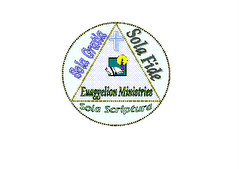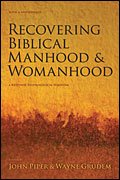DOUBTING:
Growing Through the Uncertainties of Faith
by: Rev. Prof. Alister E. McGrath, D.Phil., D.D., FRSA
Foreword: Ravi Zacharias, D.D., LL.D.
Publisher: InterVarsity Press, 2006
In his book Doubting: Growing Through the Uncertainties of Faith, Rev. Prof. Alister McGrath, Ph.D., D.D. explains all things about doubt and solution to doubt based on the Bible. In the first chapter, he explains what doubt is. Doubt is not skepticism or unbelief, but doubt is an invitation to grow in faith and understanding. It means that we have believed in Christ, but in our Christian journey of faith, we find doubt in what we believe. Also, he explains that doubt is a reminder of human sinfulness and frailty. In the next chapter, he moves to the paradigm of uncertainties. We always think that we should prove what we believe in order to prove that our belief is true. Dr. McGrath examines that this concept is wrong, because it is a vain search for certainties. To believe in God is a matter of faith and to disbelieve in God is also a matter of faith. Then, he explains three main elements of faith: trust, understanding, and obedience. Furthermore, in Chapter 3, he explores the relationship between doubt and other worldviews, especially atheism. In this chapter, he explains what atheists’ concept of God and how Christians challenge them.
Doubt is not about external things, but also internal (inward). So, in Chapter 4, he explains The Personal Aspect of Doubt: some one have bad experiences about their past tense, so they don’t want to trust in any people, especially God. How can we solve this problem? Dr. Grath leads us to the Gospel. After that, in next chapter, Dr. Grath explains the cases of doubt in the Bible and how to solve it. In the next four chapter, he explains kinds of doubt: Gospel, yourself, Christ, and God, and how to deal with them. In Chapter 10, he gives the solution to solve doubt. In this chapter, he warns the readers not to be preoccupied with doubt, because, “Doubt focuses attention on ourselves and our anxieties and stops us from trusting in God.” (p. 120). Therefore, we should develop our faith to conquer doubt by developing spiritual discipline.
In the last chapter, Dr. Grath gives the final solution to solve doubt by leading our doubt to the better perspective (God’s perspective) looking doubt in our life. He gives two examples: the Exodus from Egypt and Good Friday. From two examples, he teaches us that it’s better for us to trust in God and His promises rather than doubt. In the final explanation, he relates it with the idea of apologetics in order to teach and strengthen our faith. Let the great book inspires us to see doubt is a matter of developing our faith in Christ by reading the Bible, having fellowship with Christian friends, and reading Christian books.
Biography of the author:
Rev. Prof. Alister Edgar McGrath, D.Phil., D.D., FRSA, who was born in Belfast, Northern Ireland, 23 January 1953, is Professor of Theology, Ministry and Education; and Head of the Centre for Theology, Religion and Culture, King's College, London. He is also Founder member of International Society for the Study of Science and Religion; Member of American Academy of Religion; and Fellow of Royal Society for the encouragement of Arts, Manufactures & Commerce (FRSA) in 2005. He received Bachelor of Arts (B.A.) First Class Honours, Final Honour School of Natural Philosophy (Chemistry) from Oxford University in 1975; Master of Arts (M.A.) from Oxford University in 1978; Doctor of Philosophy (D.Phil.) from Oxford University in 1978, for research in molecular biophysics, under the supervision of Professor Sir George Radda, FRS; B.A. First Class Honours, Final Honour School of Theology from Oxford University in 1978; Bachelor of Divinity (B.D.) from Oxford University in 1983 for research in historical theology; and Doctor of Divinity (D.D.) from Oxford University in 2001 for research in historical and systematic theology. He also received 3 honorary Doctor of Divinity (D.D.) degrees from: Virginia Theological Seminary in 1996, Union Theological Seminary in 2005, and Wycliffe College, University of Toronto in 2007.





